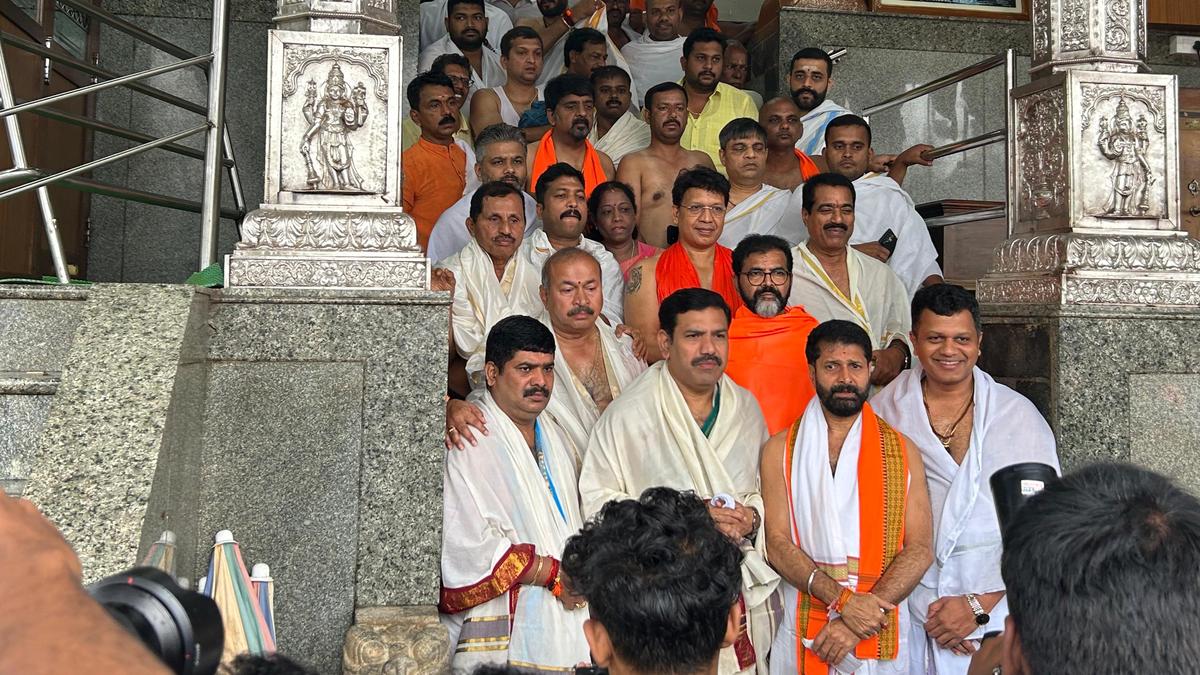ARTICLE AD BOX
Last Updated:August 15, 2025, 05:17 IST
The court observed that in appropriate cases, the power to quash such proceedings is essential to uphold fairness and bring finality to personal disputes that have run their course

The judges noted that once the marital relationship has ended in divorce and the parties have moved on, continuing criminal proceedings against family members, particularly in the absence of specific and proximate allegations, serves no legitimate purpose. File pic/PTI
The Supreme Court, on August 12, held that where a matrimonial relationship has ended in divorce and both parties have settled into their respective lives, criminal prosecution arising from that past relationship should not be allowed to continue as a form of harassment.
A bench of Justices BV Nagarathna and KV Vishwanathan observed that in appropriate cases, the power to quash such proceedings is essential to uphold fairness and bring finality to personal disputes that have run their course.
The court was hearing an appeal filed by Navneesh Aggarwal and his parents against the Punjab and Haryana High Court’s order dated August 1, 2024, which had declined to quash an FIR lodged under Sections 323, 406, 498-A, and 506 of the IPC by his former wife. The wife had raised no objection to the quashing, and both parties had ended their relationship through divorce by mutual consent, withdrawing all pending cases.
The bench said that within the framework of inherent powers, a High Court may quash a criminal proceeding, complaint, or FIR if it is satisfied that, in light of such a settlement, there is little likelihood of conviction and that continuing the proceedings would result in injustice. The court stressed the need to apply the law in a way that addresses genuine grievances while preventing misuse.
The judges noted that once the marital relationship has ended in divorce and the parties have moved on, continuing criminal proceedings against family members, particularly in the absence of specific and proximate allegations, serves no legitimate purpose. Such continuation, they said, only prolongs bitterness and burdens the criminal justice system with disputes that are no longer active.
In this case, neither party was interested in pursuing criminal proceedings. The bench invoked its powers under Article 142 of the Constitution to advance complete justice, quashing the chargesheet and FIR registered at Police Station Radaur, District Yamuna Nagar, Haryana, along with all other criminal proceedings arising from them.
The court referred to Dara Lakshmi Narayana v State of Telangana (2025), which held that criminal law is not to be used as a tool of harassment and that judicial scrutiny must guard against such misuse. It also cited Mala Kar v State of Uttarakhand (March 19, 2024) and Arun Jain v State of NCT of Delhi (April 1, 2024), in which it had exercised powers under Article 142 to quash criminal proceedings arising out of matrimonial disputes once the parties had divorced, holding that continuation of prosecution in such circumstances amounted to an abuse of process.
The Supreme Court set aside the High Court’s decision, noting that the former wife no longer intended to prosecute the case. It found that continuing the proceedings would only result in harassment to the appellants, given the facts of the matter, and that no useful purpose would be served by taking the case to its conclusion.
The marriage between the parties was solemnised on March 6, 2018. About ten months later, the wife left the matrimonial home with her daughter from an earlier marriage. Multiple cases were filed thereafter, including the present FIR. A decree of divorce by mutual consent was granted by the Family Court on January 19, 2024, and all other pending proceedings initiated by the wife were withdrawn.
When the appellants sought quashing of the FIR before the High Court, their plea was dismissed on the ground that certain allegations relating to the victimisation of the child had been sufficiently substantiated. The Supreme Court, however, found no justification for continuing the criminal proceedings in view of the mutual settlement, divorce, and the wife’s lack of interest in pursuing the matter.

Sanya Talwar, Editor at Lawbeat, has been heading the organisation since its inception. After practising in courts for over four years, she discovered her affinity for legal journalism. She has worked previousl...Read More
Sanya Talwar, Editor at Lawbeat, has been heading the organisation since its inception. After practising in courts for over four years, she discovered her affinity for legal journalism. She has worked previousl...
Read More
- Location :
- First Published:
August 15, 2025, 05:17 IST
News india SC Quashes Criminal Case After Divorce, Says Law Not To Be Used For Harassment
Disclaimer: Comments reflect users’ views, not News18’s. Please keep discussions respectful and constructive. Abusive, defamatory, or illegal comments will be removed. News18 may disable any comment at its discretion. By posting, you agree to our Terms of Use and Privacy Policy.
Read More



.png)
.png)
.png)
















 2 days ago
9
2 days ago
9









 English (US) ·
English (US) ·